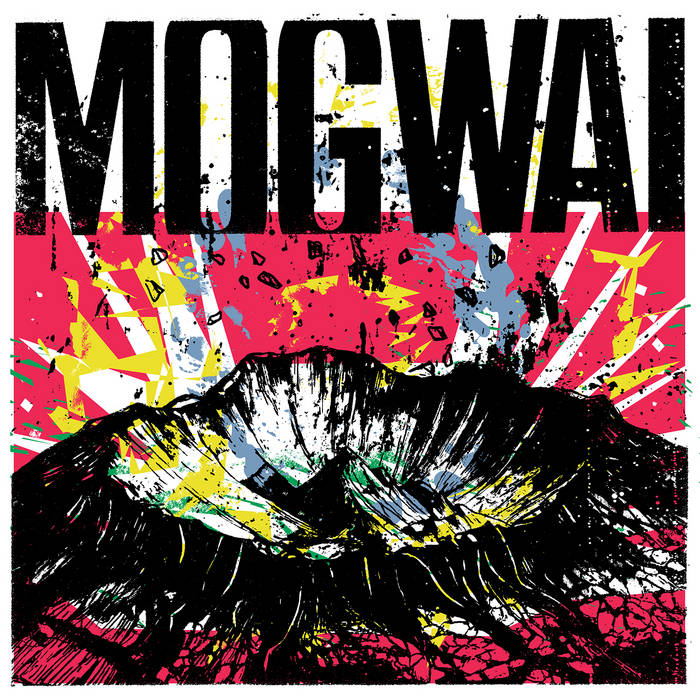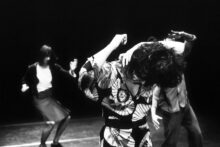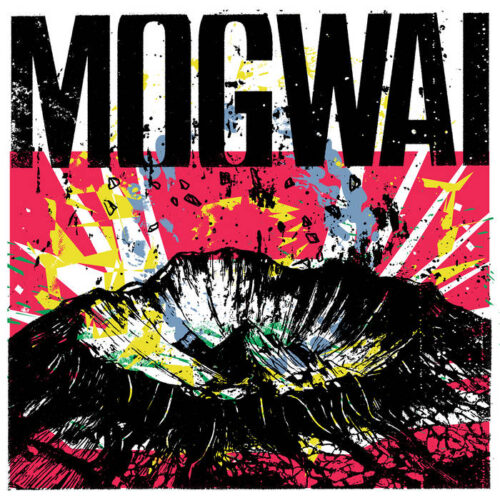“. . . if anything weighty happens in my life, the last thing I want to do is write a song about it,” Stuart Braithwaite told The Herald in 2003. Discussing Mogwai’s fourth album, Happy Songs For Happy People, the man sometimes known as “Plasmatron” denied the tracks had been written about anything, per se. It was open to the individual’s interpretation regarding which numbers were happy tunes, or sad ones, or evocative of any emotions between. Only some Mogwai songs have lyrics anyway, which makes them particularly malleable to having listeners’ feelings projected onto the pieces, rather than there being any concerted effort on the part of the composers to control their audience’s response.
This might still apply. Nevertheless, it’s tricky to disregard the background to the post-rockers’ eleventh studio album. First came the highpoint of watching their previous one, As The Love Continues, top the UK chart in 2021. This was followed by a darker period of personal trauma and loss. Barry Burns’ daughter also required a life-saving bone marrow transplant which must have been unimaginably difficult for the multi-instrumentalist and his family.
That doesn’t necessarily mean any of this new batch of sad/happy/betwixt bangers (delete as inclined) are directly informed by any of those experiences either. If they aren’t, it’s easy to hear them as exercises in catharsis. Even that could be too black-and-white a way to consider this enigmatic art.
More vaguely, Braithwaite has suggested The Bad Fire was a welcome distraction from what was occurring around Mogwai at the time. Whatever the case, the situation (or the need to mentally escape it) has generated, to a greater, lesser or utterly indeterminable extent, a terrific follow-up Mogwai’s No.1 smash.
Given both context and material, the impression is that of taking stock and hunkering down, as opposed to the band reinventing themselves, pushing hard at the boundaries of their style(s) or challenging the expectations of their long-term and by-now partially deafened followers.
The Bad Fire was recorded quickly, as Mogwai’s early works were. There’s some sense of reconciliation going on between their earthier 90s sound and the synthy, spacey and sometimes poppier material that’s inhabited their last few records. A case in point: the sparkling opener, ‘God Gets You Back’, is followed by ‘Hi Chaos’, a quiet/loud/EVEN-LOUDER number which could’ve slotted onto an early EP or 2006’s fierce Mr Beast. Similarly, ‘If You Find This World Bad, You Should See Some Of The Others’, is classic Mogwai in that it builds slowly to a pneumatic crescendo.
‘Fanzine Made Of Flesh’ finds the group in pure pop mode, with its catchy vocal melody only thinly disguised behind the arty façade of the vocoder. ‘18 Volcanoes’ is also sung and is more surprising in that it resembles a barer My Bloody Valentine, like a beautiful tune Kevin Shields hasn’t quite finished plastering with his sonic equivalent of J.M.W. Turner’s brushstrokes.
The wonkiest piece is ‘Hammer Room’. It suggests Mogwai have dismantled themselves into a krautrock-covering chamber ensemble while following a percussive rhythm made by someone punching croutons. As for the gorgeous closer ‘Fact Boy’, imagine the cult legends of Icelandic indie-tronica, Múm, circa 2002, given an alt-country twist.
The Bad Fire is proof, then, that trying times make for defiant musical motivation. Alternatively, given the info mentioned above, it isn’t evidence of that at all. Who knows? Just project what you will and enjoy.





